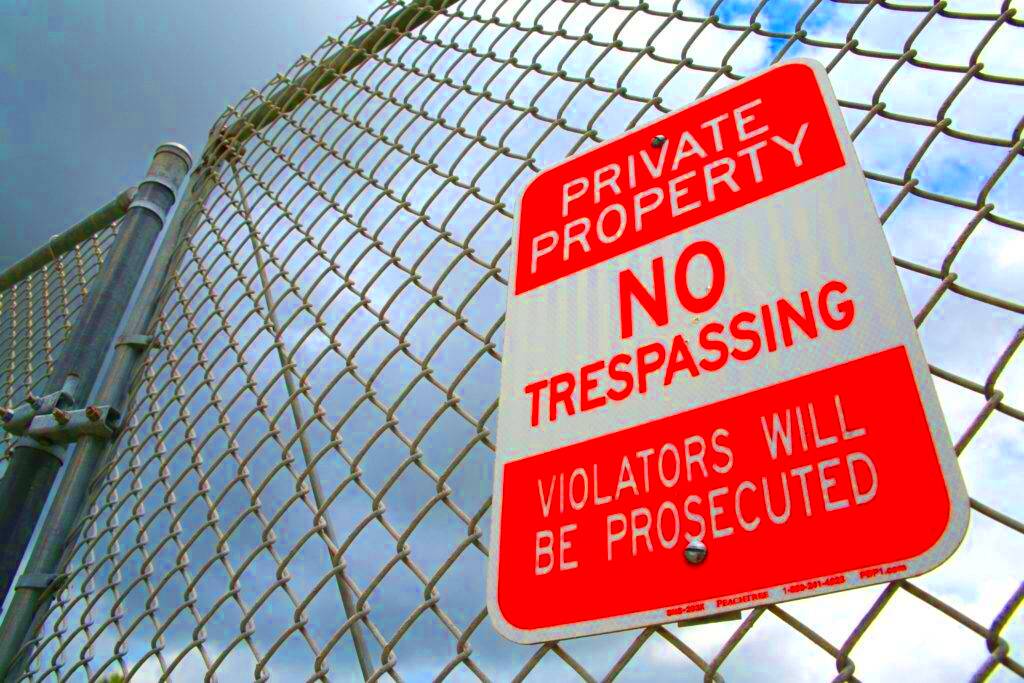Nevada Trespass Law: What Property Owners Should Know
Trespass law in Nevada is essential for property owners to understand. It protects their rights and helps maintain the integrity of their property. Trespassing occurs when someone enters or remains on someone else’s property without permission. This can lead to various legal issues, and knowing the law can empower property owners to take the necessary steps to protect their rights. In this section, we’ll explore what constitutes trespassing, the rights of property owners, and how to handle trespassers effectively.
What Constitutes Trespassing

Trespassing is defined as the unauthorized entry onto someone else’s property. In Nevada, several actions can qualify as trespassing:
- Physical Entry: Walking, driving, or any other physical presence on the property without permission.
- Remaining on Property: Staying on the property after being asked to leave.
- Building Structures: Erecting any structures or improvements on someone else’s property without consent.
- Damage or Interference: Causing damage to the property or interfering with the owner’s enjoyment of their land.
Understanding these elements helps property owners identify when trespassing occurs and take appropriate actions.
Rights of Property Owners
Property owners in Nevada have specific rights when it comes to trespassing. These rights include:
- Exclusion: The right to exclude anyone from their property, regardless of their relationship with that person.
- Use of Reasonable Force: In some cases, property owners can use reasonable force to remove trespassers from their land.
- Legal Recourse: The ability to pursue legal action against trespassers for damages caused to the property.
- Requesting Police Assistance: Property owners can call law enforcement to remove trespassers if necessary.
Knowing these rights allows property owners to act confidently and protect their property effectively. By understanding the law, owners can take proactive steps to safeguard their land from unauthorized intrusions.
Consequences for Trespassing
Trespassing can have various consequences for those who violate property boundaries. In Nevada, the repercussions can range from civil to criminal penalties, depending on the severity of the trespass. Understanding these consequences is crucial for both property owners and potential trespassers. This knowledge can deter trespassing and promote respect for private property. Let’s break down the main consequences of trespassing:
- Civil Liability: Property owners can sue trespassers for damages. This might include compensation for any harm caused to the property or loss of enjoyment.
- Criminal Charges: Trespassing can be classified as a misdemeanor in Nevada. Depending on the situation, repeat offenders may face felony charges.
- Fines and Penalties: Trespassers found guilty may have to pay fines, which can vary based on the case.
- Restitution: Courts may order trespassers to pay restitution to property owners for any damages incurred.
Overall, understanding the consequences of trespassing helps individuals think twice before entering someone else’s property without permission.
Defenses Against Trespass Claims
If someone is accused of trespassing, they may have several defenses available to contest the claim. Understanding these defenses can help protect their rights. Here are some common defenses against trespass claims:
- Permission: If the trespasser had permission to enter the property, this can serve as a strong defense.
- Mistaken Belief: If the trespasser genuinely believed they were allowed on the property, it may negate intent.
- Public Right of Way: If the property is accessible by public means, the trespasser may argue that they were not trespassing.
- Legal Justification: In some cases, a trespasser may enter property to avoid harm or emergency situations.
Each case is unique, and having legal support can significantly impact the outcome of a trespass claim. It’s crucial for anyone facing trespass accusations to understand these defenses.
How to Handle Trespassers
Dealing with trespassers can be a stressful experience for property owners. However, knowing how to handle such situations effectively can make a big difference. Here’s a step-by-step approach to managing trespassers:
- Stay Calm: Reacting emotionally can escalate the situation. Approach it calmly.
- Identify Yourself: Politely inform the trespasser that they are on private property and ask them to leave.
- Document the Incident: Take notes or photos of the trespasser and the situation for future reference.
- Call Law Enforcement: If the trespasser refuses to leave or becomes aggressive, don’t hesitate to contact the police.
- Consider a No Trespassing Sign: Posting clear signs can help establish boundaries and deter future trespassers.
By following these steps, property owners can protect their rights while minimizing conflicts with trespassers. Knowing how to respond can create a safer environment for everyone involved.
Reporting Trespassing Incidents
When trespassing occurs, knowing how to report the incident is crucial for property owners. Reporting helps document the issue and may lead to action against the trespasser. Here’s a guide on how to effectively report trespassing incidents in Nevada:
- Gather Evidence: Document the incident by taking photos or videos of the trespasser and any damage caused. Keep a detailed record of the date, time, and nature of the trespass.
- Contact Local Authorities: If the trespasser refuses to leave or poses a threat, call the police immediately. Provide them with all relevant information, including your location and a description of the trespasser.
- File a Report: If you wish to take legal action, file a formal police report. This report can serve as important evidence in any future legal proceedings.
- Notify Neighbors: Informing neighbors can create a network of awareness and help prevent future incidents.
Reporting trespassing incidents not only helps protect your property but also contributes to the overall safety of the community.
Legal Assistance for Property Owners
Property owners facing trespassing issues may find legal assistance beneficial. An attorney experienced in property law can provide valuable insights and help navigate the complexities of the legal system. Here are some ways legal assistance can support property owners:
- Consultation Services: An attorney can offer guidance on your rights as a property owner and the best course of action.
- Document Preparation: Legal professionals can assist in preparing necessary documents, such as cease and desist letters.
- Representation in Court: If a trespasser disputes your claims, having legal representation can ensure your rights are protected in court.
- Understanding Local Laws: Attorneys can explain local trespassing laws and how they apply to your situation.
Investing in legal assistance can provide peace of mind and empower property owners to take effective action against trespassers.
Frequently Asked Questions
Here are some common questions property owners have regarding trespassing laws in Nevada:
- What is considered trespassing in Nevada?
Trespassing occurs when someone enters or remains on your property without permission. - Can I use force to remove a trespasser?
You can use reasonable force to remove a trespasser, but it’s best to call law enforcement if the situation escalates. - What should I do if a trespasser refuses to leave?
Contact the police immediately and provide them with details about the situation. - Are there legal consequences for trespassers?
Yes, trespassers may face civil liability, fines, or even criminal charges depending on the situation. - How can I prevent trespassing on my property?
Posting no trespassing signs and maintaining visible boundaries can help deter trespassers.
Understanding these frequently asked questions can help property owners navigate the complexities of trespassing laws and take the necessary steps to protect their rights.
Conclusion
Understanding trespassing laws in Nevada is essential for property owners who want to protect their rights and property. By knowing what constitutes trespassing, the rights property owners have, and the consequences for trespassers, owners can take informed steps to address trespassing incidents. Additionally, understanding defenses against trespass claims and how to report incidents can empower owners to act effectively. Seeking legal assistance can further enhance their ability to navigate complex situations. Ultimately, being proactive in educating oneself about these laws can create a safer and more secure environment for property owners and their communities.


